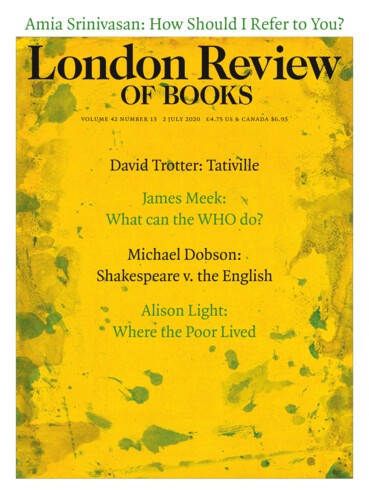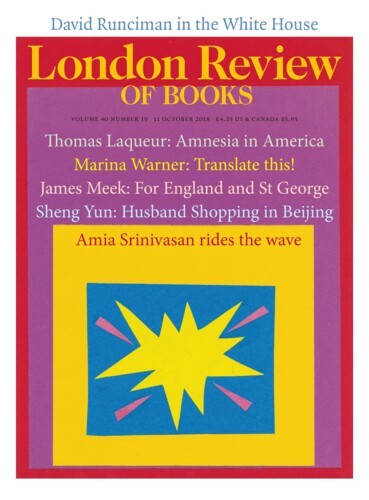What does Fluffy think? Pets with Benefits
Amia Srinivasan, 7 October 2021
The idea that it is impossible to know what non-human animals are feeling or thinking can serve as cover for their exploitation, domination and extermination. Do we really know nothing of how animals, even animals as physiologically different from us as lizards or bats, feel about the burning of their forests, the melting of their ice floes, the contamination of their water? Or is it that we do know, and simply fear what acknowledging it would mean? In sex of all things, where humans so often misconstrue what other humans want, where the temptation to project our fantasies and images onto the other is always pressing, where coercion and control figure all too easily – can we ever trust ourselves to know, really know, what an animal wants? Perhaps one day there will be members of the animal species Homo sapiens who are able to have sex with other animal species in a way that has nothing to do with the will to dominate, fetishise or transgress. If so, I think, those people would be of our species, but not of our kind.





